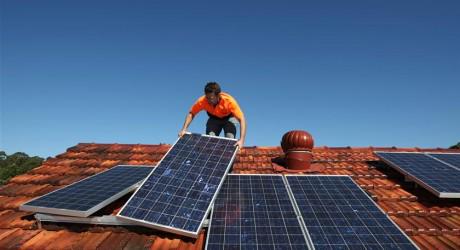Solar battery storage costs are projected to become more affordable over the next few years. This is what many renewable experts believe is the gist of studies made by three of the most reputable investment banks in the world.
According to a recent report by investment bank UBS, solar battery storage is projected to dip to $230 per kilowatt hour in the next two to three years, and could drop to $100 per kilowatt hour. This was in response to an earlier report from another banking giant Citigroup that said that solar battery storage costs would halve in five to six years.
Meanwhile, HSBC predicts that the glory days of the fossil fuel generation are over, saying that there is no way that the fossil fuel sector would be as profitable as it was in the past few decades.
UBS, Citigroup, HSBC infer solar battery storage is the future
The predictions made by the three financial institutions suggest that solar battery storage and charge will become more affordable in the near future, and this could make solar systems more viable for most households. Up to this day, one of the hurdles for households in investing in solar system panels is the prohibitive costs of solar battery storage.
The current status quo in Australia as far as home solar electricity generation is concerned is for households to feed the excess solar energy back into the grid by selling it to energy providers. When they need electricity from the grid during cloudy weather and night, consumers have to pay up to 30 cents for kWH. This is way higher than the 8 cents per kilowatt hour that they get for feeding excess solar power back into the grid.
Through the years, renewable energy supporters believe that the next big thing for solar was the ability for households to store energy they get from solar panels and use it later on and at a reasonable expense.
UBS’s report indicates that solar battery storage will hit the $230 per kilowatt hour mark within two to three years, before dropping further to $100 per kilowatt hour. The report further projects that the market for solar battery storage will expand by 50 per cent by the year 2020.
Weeks ago, Citigroup said solar battery storage should hit the $230/kWh mark to be able to win over conventional power generation and threaten the dependence of Australia on fossil fuel as its main source of energy.
HSBC, on the other hand, predicts that affordable solar battery storage would allow more households and businesses to generate and store energy from their rooftop panels, and thus reduce their need to get electricity from the main grid.
HSBC adds that affordable solar battery storage would reduce the need for subsidies and deliver paybacks for solar powered households and businesses in the form of reduced electricity bill at least six years from now.
These three banks issued the reports to explain why there is a sudden interest among investors and corporations to invest in the renewable energy sector which is expected to get a boost once solar battery storage becomes more affordable to the common households.



